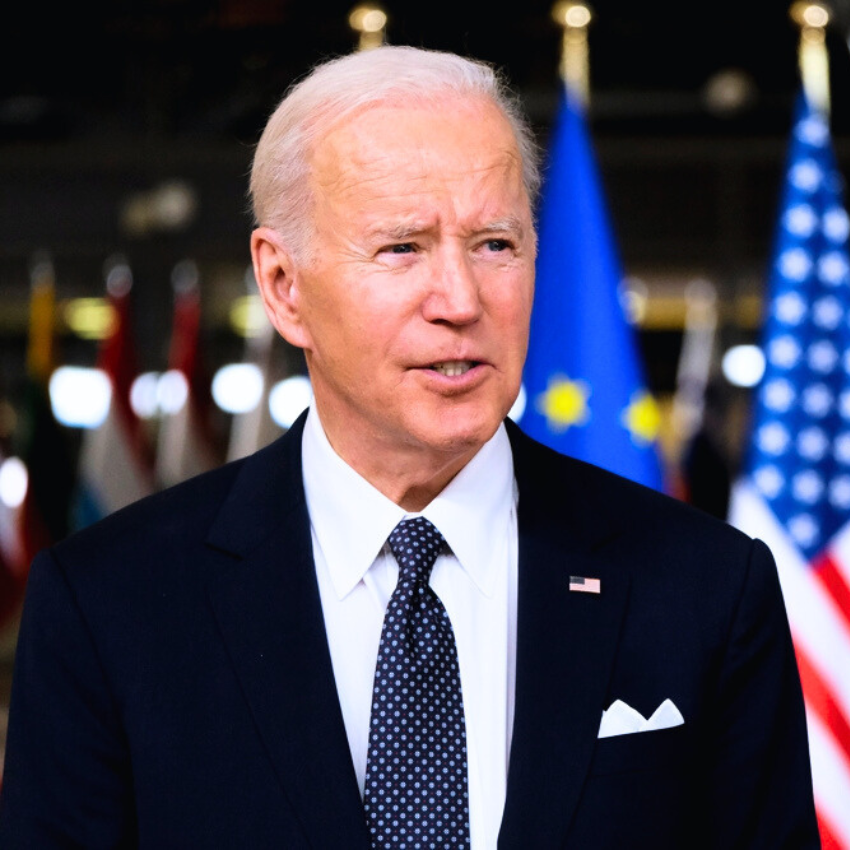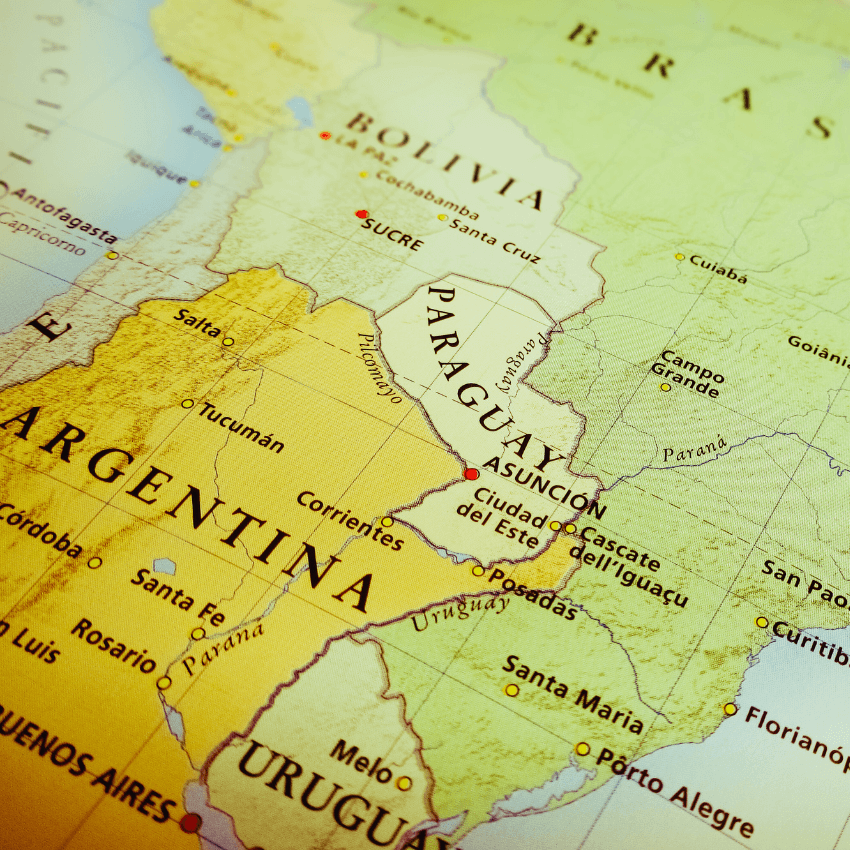Americas Program
Ifri's work on the Americas region focuses mainly on the United States. Indeed, for more than 20 years, Ifri's Americas Program has provided keys to understanding American society and domestic policy while shedding light on developments in the country's foreign policy, including transatlantic relations and trade issues.
Since 2023, a specific axis on Latin America structures more actively Ifri's research on this region.
Ifri's Canada program was active in 2015 and 2016.
Read more


Research Fellow, Head of the Americas Program, Ifri
Titre Bloc Axe
Research Areas
See all our interventions
Titre Axe de recherche
United States
The November 2020 election of Joe Biden ended Donald Trump's extraordinary tenure. However, it doesn't inevitably indicate a return to previous policies, as American society's expectations have changed. Indeed, there is a call for a strong federal state on economic and social issues on the one hand, and on the other hand an increased mistrust vis-à-vis American interventionism. The magnitude of these transformations shows how necessary is a monitoring and analysis of the ever-evolving American political landscape — especially since they resonate with comparable political developments in Europe and in the rest of the world.
Founded in 2000, Ifri's United States Program aims to understand American culture and politics from the inside. Furthermore, it studies the evolutions of the country’s foreign and defense policies. It lastly actively contributes to maintaining close trans-Atlantic ties, producing and broadcasting research on the United States in France and Europe while also regularly welcoming U.S. academics and officials to Paris.
Building on field missions and a large network of journalists, business executives, diplomats, academics and researchers from American think tanks, the program's analysis are offered in two main formats: the Potomac Papers, which are about 30 pages long notes that feature our latest research activities, and the Chroniques Américaines, which cover the country's social and political current events.The program also organizes research seminars and, since 2000, a major annual conference in December. As to inform the largest audience possible, our experts regularly intervene in the media, both in the written press and audiovisual sector. Our researchers also contribute to Ifri's main publications, Ramses and Politique étrangère. Through this program, Ifri associated with the «Time to Sign Off» (TTSO) Newsletter and Slate.fr to air the "Trump 2020" Podcast (available in French) every Wednesday from June 2019 to January 2021, focusing on the U.S. presidential elections. The partnership is renewed with the "New Deal" Podcast (also available in French) to report on U.S. current political events every Thursday.

Titre Axe de recherche
Canada
From a French standpoint, Canadian issues are often considered through Québec’s cultural and political dynamics. It would be unfortunate, however, to miss out on the benefits of the Canadian model out of a lack of interest for the country’s Anglophone regions. The uniqueness of Canada’s political institutions stems from the fact that they seek to integrate several layers of diversity: national and linguistic minorities, immigrants from diverse backgrounds and native populations. Today, the country offers an original approach on major topics such as federalism and multiculturalism.
Meanwhile, the aircraft and transportation industry, energy and mining, as well as sustainable development are key to the country’s economic prosperity, which is reflected in its international trade policy. Knowing about Canada’s economic environment is crucial, especially whilst the Comprehensive Economic and Trade Agreement is in the process of being ratified.
Canada also plays a very special role on the international scene. It was instrumental to the emergence of the concept of peacekeeping missions in the 1950’s, an idea that Canada has consistently linked to a foreign policy agenda of poverty reduction and human rights defense.
This Program was active in 2015 and in 2016.

Titre Axe de recherche
Latin America
Latin America is a resource-rich region with enormous potential for economic development. Venezuela and Mexico, for example, have essential oil reserves. Lithium, a critical material for the ecological transition, is abundant, especially in Chile, which has the largest reserve in the world with 9.2 million tons of lithium. However, this economic potential is impacted by the political situation in several states. Latin America has a long history of democratic instability and authoritarianism, and it is therefore essential to understand current political developments. This instability is also one of the primary causes of the large migration flows from Central and South American countries to the United States and Canada. For a long time, Latin America has been considered the ''backyard'' of the United States, but now it must reckon with China and Russia, which are trying to increase their influence in the region. Nevertheless, Latin America has made great strides in regional integration in recent decades, with organizations such as Mercosur, which is currently negotiating an ambitious trade agreement with the European Union. Created in 2023 as part of the Americas program, a specific research axis on Latin America allows Ifri to structure a more active research on this region, especially on energy policies but also on important democratic and geo-economic issues.

The Team

Our research fellows: Americas Program
Publications
Le Pentagone face à la séquestration et aux sorties de guerres : l'art du brouillard budgétaire ?
The U.S. defense budget has faced a sharp reduction since 2010, linked to the drawing down of two wars and the Great Recession.
Obama's Second Term: The Process of Building Global Leadership
The second term of Barack Obama’s presidency has introduced new Foreign Policy leadership that suggests changes for the future. The White House will likely centralize foreign policy making and the Treasury Department may play a bigger role in the country’s global engagement. Despite new policy direction, no framework for the strategic renewal of U.S. global leadership has emerged.
Les républicains et la politique étrangère américaine: quelles perspectives pour 2016 ?
The future candidates for the 2016 Republican presidential primary will be expected to develop a clear foreign policy agenda and prove the GOP’s credibility on foreign affairs issue.
A City Upon a Crumbling Hill?
Interrogations on a possible decline of U.S. leadership are a regular occurrence in the country.
The Future of the American Leadership: Between Renewal and Delegation
In an effort to preserve its global leadership, the United States has engaged in a “double rebalancing”; a geopolitical rebalancing, as illustrated by the “pivot to Asia,” and a rebalancing of means, with the Obama administration increasingly advancing diplomatic and economic negotiations (economic statecraft), emphasizing the indirect uses of military force and opening up reinforced dialogue with new actors.
The Future of U.S. Leadership
The French Institute for International Relations (Ifri) and The German Marshall Fund of the United States - France (GMF) have partnered to launch a joint research program on the transformations of U.S. leadership by the year 2020.
The U.S. Oil and Gas Boom
A funny thing happened in the last few years when no one was paying attention. J.R. Ewing, the legendary Texas oilman, and his wife Sue Ellen sold Southfork, their ranch near Dallas, and moved to a new home in Pennsylvania (Northfork?). JR immediately began buying subsurface mineral rights for acres of land above the Marcellus and Utica shale formations in the Appalachian Basin. Cliff Barnes, J.R.'s nemesis, sold all his Texas properties and moved to North Dakota, where he started leasing mineral rights to acreage above the Bakken shale play.
How Does the Tea Party Compare with European Far Right Movements?
There is a rich history of far-right political parties in Europe. Long-standing parties such as the French Front National (FN), mostly marginalized since World War II, have enjoyed a resurgence since the 1980’s. Under the very recent leadership of Marine Le Pen, the FN has undergone a rejuvenation of its communication strategy and gained two seats in the National Assembly, the first time that the FN won any seats since the end of the proportional representation system in 1988. There are also many newer far-right parties in Europe, such as the Dutch Party for Freedom (PVV). The PVV, formed in 2006 by Geert Wilders, has become the third most popular party in the Netherlands and was until recently a member of the governing minority coalition.
Don't Bank on Change: Finance and Regulatory Reform in the U.S.
As a number of provisions of the Dodd-Frank Act are entering into force, five years after the beginnings of the financial crisis, Professor Herman Schwartz explains how the U.S. banking community will continue to hurt the interests of the American economy and political system.
Is Omar Sy an Uncle Tom? Race relations in America and France as seen through "Les Intouchables"
The Intouchables tells the story of a young Senegalese immigrant named Driss, who has been hired to be the caretaker of Philippe, a rich tetraplegic. The feel-good comedy has been a smashing success in France and across the world, grossing over $350m worldwide. While reviews of the film both in France and abroad have been mostly positive, there is a contingent of American critics that thinks that The Intouchables highlights racial stereotypes.
Would you like to support this Program? Contact us.
Contact us directly
Support independent French research
Ifri, a foundation recognized as being of public utility, relies largely on private donors – companies and individuals – to guarantee its sustainability and intellectual independence. Through their funding, donors help maintain the Institute's position among the world's leading think tanks. By benefiting from an internationally recognized network and expertise, donors refine their understanding of geopolitical risk and its consequences on global politics and the economy. In 2024, Ifri will support more than 70 French and foreign companies and organizations.































